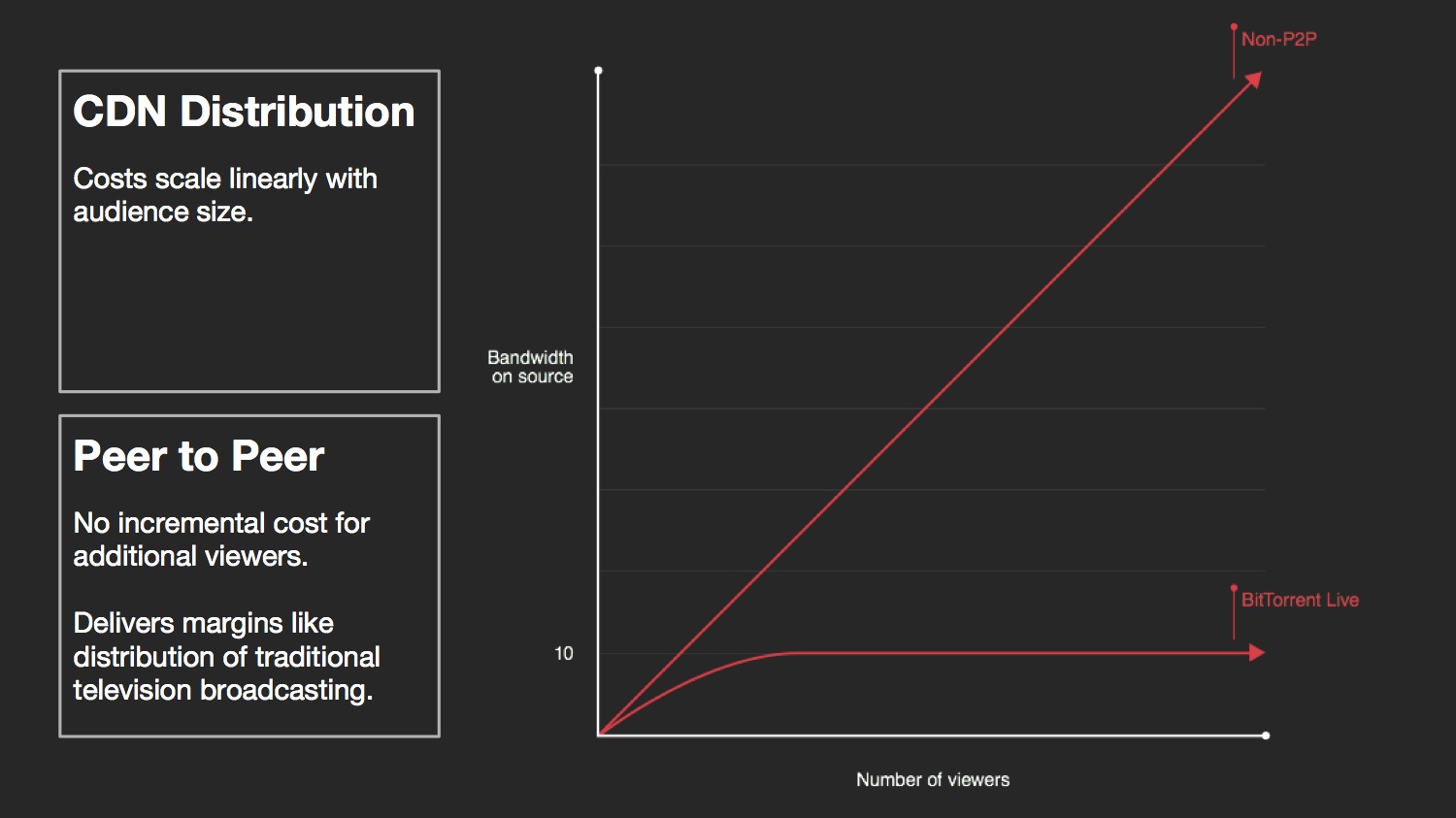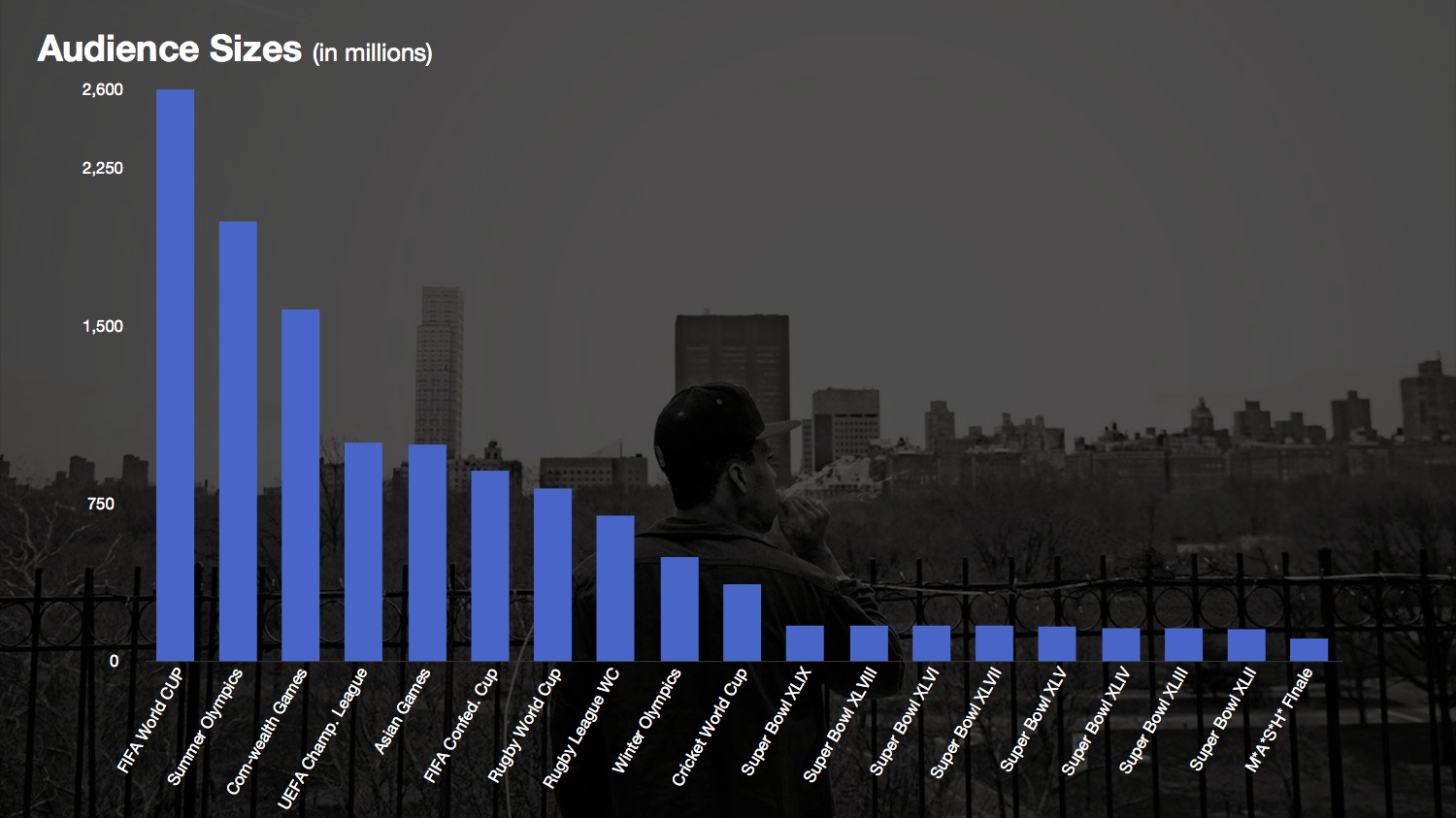Online live video broadcasting is complicated and expensive, but it doesn’t have to be. A distributed solution can provide scalable online livestreaming that doesn’t cost more for each additional viewer.
Earlier today BitTorrent CEO, Eric Klinker spoke at Mobile World Congress in Barcelona, talking about the live online video broadcasting protocol known as BitTorrent Live. Below we’ve embedded his presentation, but I want to reiterate a few of the main points that show how big the problem and opportunity around online live broadcasting are.
Consumers continue to evolve how they are consuming content. Trends continue to show a shift toward spending more time on phones, with 86% of that time in apps compared to the browser. In general, consumers want options, including watching time-shifted content, and other alternatives to traditional TV. (Nielsen)
Much to consumers’ delight, the on-demand delivery of scripted content via online streaming is working pretty well. Companies like Netflix and Hulu have shown that there are very reliable ways to provide that service. However, provisioning is still extremely difficult and expensive for live broadcasting.
This is the Goldilocks Paradox.
Provision too much and you’re wasting money on unnecessary resources
Provision too little and your stream will fail, which is obviously a disaster
But here’s the kicker – even if you can provision just the right amount, you’re still losing simply because of the effort required to make that prediction and make the provisions. On top of that, it’s literally impossible to provision correctly sometimes. You can’t predict when something amazing will happen on a live broadcast that will get shared out through social networks and quickly multiply the number of viewers. That can cost a huge amount of money in overage charges, or even worse, it can cause your stream to fail right when things are getting good.
Special events, news, and sports are the hardest to accommodate, and also tend to be the most-watched programs. The 21 most-watched television programs in American history are all Super Bowls. And Super Bowls aren’t even close to the numbers that some global sporting events capture – like the World Cup and Champion’s League just to name two.
Lag has become a bigger issue as well due to the way viewers engage with live television across multiple screens. Viewers don’t just watch live video. They also consume social streams related to an event on Twitter and Facebook, as well as pushed live data such as sports statistics that sit alongside the streamed broadcast. If the video stream is lagging minutes behind the other information streams it ruins the experience of viewing a “live” event. The work we’ve been doing here at BitTorrent has developed a protocol that delivers very little lag, no matter how many people are viewing, which means that online video broadcast will finally be able to keep up and provide a truly “live” experience.

Last, but not least is the massive problem with how costs scale. Current methods for online live broadcasting over the internet scale linearly with the size of the audience – that means that you have to pay more as additional viewers join your stream. Today’s online broadcasters have a big disadvantage because traditional television doesn’t work that way. Once you’re broadcasting with traditional TV, anyone can tune in, and you don’t have to pay anything extra. Peer to peer online streaming returns to the model of traditional TV, where there is no incremental cost for growth in audience size.
BitTorrent’s work for distributed online live broadcasting, with its improvements on lag and scaling, is going to deliver a huge win for broadcasters and viewers alike. Stay tuned. We’ll be bringing you more on this soon. And sign up to receive emails if you want to be the first to know.




